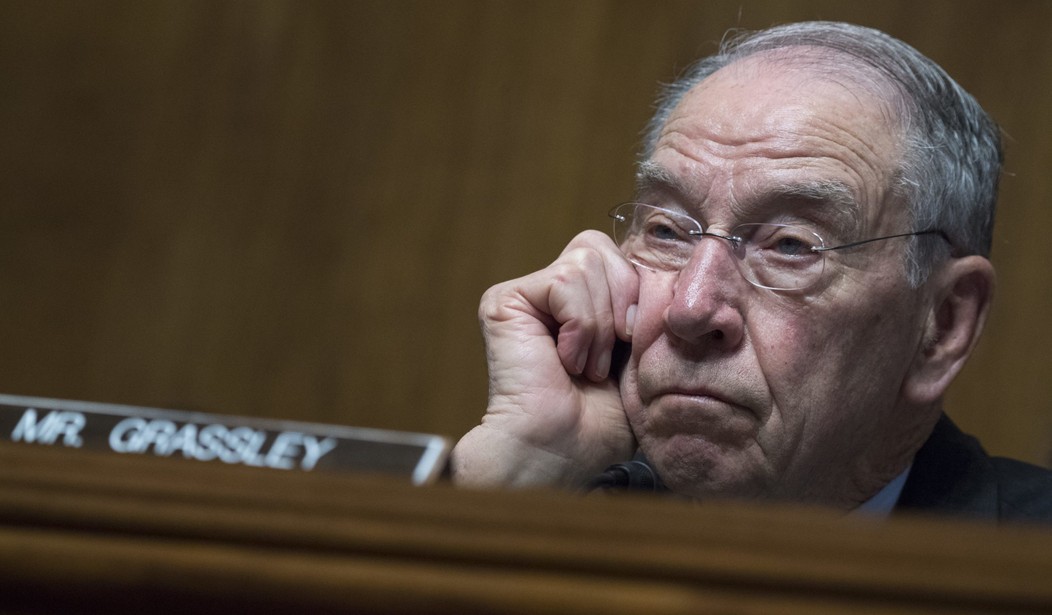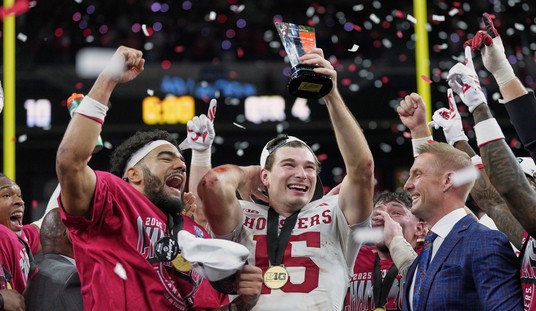National Public Radio on Friday amended its incorrect “bombshell” report alleging that Donald Trump Jr. may have given false testimony before the Senate in September 2017, but Senator Richard Blumenthal (D-Conn.) doesn’t seem to have gotten the memo.
In a letter to Senate Judiciary Committee Chairman Charles Grassley on Monday, Blumenthal called for Trump Jr. to be hauled back to Congress for further questioning because his testimony conflicted with the account President Trump’s former lawyer, Michael Cohen, gave in a guilty plea in federal court.
Blumenthal also cited a highly questionable CNN article from July 2018 suggesting that Trump Jr. may have lied when he said he did not tell his father in advance about the June 9, 2016, Trump Tower meeting. CNN’s source for that story was Cohen’s lawyer, Lanny Davis, who later retracted his allegations.
Blumenthal tweeted the following statement about his letter to Grassley:
Lying to Congress is a federal crime & the Judiciary Committee must determine if facts were deliberately omitted or misstated to mislead & prevent us from getting to the truth. Chairman Grassley, we must have Donald Trump Jr. & other key witnesses re-appear before the Committee. pic.twitter.com/tfQEshrqTJ
— Richard Blumenthal (@SenBlumenthal) December 3, 2018
Grassley responded to Blumenthal’s concerns in a delightfully piquant three-page letter debunking his claims.
He informed the seemingly inattentive Democrat that the “recent press reports” pertaining to Trump Jr.’s testimony were based on “fake news.”
You referenced “recent press reports” for that claim, but did not cite any in the footnote to that sentence. I suspect I know why. On November 30, 2018, NPR published a story titled “Trump Jr.’s 2017 Testimony Conflicts with Cohen’s Account of Russian Talks.”
The article made this argument – claiming that Cohen’s acknowledgement that the real estate efforts had continued into 2016 somehow implicated Trump Jr., as though Trump Jr. had told the Committee it had ended earlier. That was fake news. The author had mischaracterized a section of the transcript referring to a different, earlier attempt that had ended before the presidential campaign. NPR corrected the story, admitting:
An earlier version of this report mischaracterized an answer Donald Trump Jr. gave to Senate investigators in 2017 about the prospective projects his family was negotiating with people in Moscow. . . . Trump Jr. did acknowledge in his testimony that Cohen and another man were exploring a possible deal in Moscow in 2015 or 2016. The interview transcript clearly reflects this acknowledgement. Any claim to the contrary is incorrect.
The Senate Judiciary Committee chairman went on to assure Blumenthal that there was “nothing inconsistent” with Trump Jr.’s testimony about the Moscow deal.
Grassley then moved on to the Connecticut senator’s next “puzzling” claim, which he noted was also “the subject of a high-profile retraction.”
You cited a CNN article from July 2018 to imply that Mr. Trump Jr. may have lied when he said he did not tell his father in advance about the June 9, 2016 Trump Tower meeting.
That CNN article cited an anonymous source to claim that Mr. Cohen had witnessed Mr. Trump Jr. tell his father about the meeting beforehand. That anonymous source was later revealed to be Lanny Davis, Cohen’s attorney, who retracted his claim in a bizarre media spectacle, which your office seems to have missed. As the Washington Post later explained:
In a pair of new interviews with The Washington Post and BuzzFeed, Davis has backed off two massive claims he made in recent weeks, including that former Trump lawyer Michael Cohen had told people he witnessed President Trump being informed of Donald Trump Jr.’s 2016 Trump Tower meeting with a Russian lawyer before it happened. He has also admitted he was the source for the initial report on that claim — despite denying it last week. That initial report is the very CNN article you cited.
Grassley said there were other questions about perceived inconsistencies between Trump Jr.’s interview with the committee and a May 2018 New York Times article.
“Unfortunately, as we have seen all too frequently, reporting related to the Russia investigation and the Trump campaign has often been inaccurate,” Grassley wrote. “Even if this reporting is entirely accurate, it is not clear that anything in that article contradicts Mr. Trump, Jr.’s testimony, let alone materially so.”
Grassley told Blumenthal that he didn’t believe the examples he cited warranted bringing Trump Jr. back in for an additional committee interview, adding that he could think of examples of misleading testimony that should be treated seriously.
For example, when the Committee staff interviewed Glenn Simpson in August of 2017, Majority staff asked him: “So you didn’t do any work on the Trump matter after the election date, that was the end of your work?” Mr. Simpson answered: “I had no client after the election.”12 As we now know, that was extremely misleading, if not an outright lie.
Contrary to Mr. Simpson’s denial in the staff interview, according to the FBI and others,
Fusion actually did continue Trump dossier work for a new client after the election.As part of the public release of the House Intelligence Committee’s majority report on its Russia investigation, the executive branch declassified some previously classified information from an FBI document. That information detailed a March 2017 meeting between Daniel Jones and the FBI. Mr. Jones stated that he was leading a research and investigatory advisory organization called the Penn Quarter Group, which “had secured the services Steele, his associate [redacted], and Fusion GPS to continue exposing Russian interference in the 2016 Presidential election.” Mr. Jones further told the FBI that the Penn Quarter Group “was being funded by 7 to 10 wealthy donors located primarily in New York and California, who provided approximately $50 million.”
The report noted that Mr. Jones stated he planned to push the information he obtained from Fusion and Steele to policymakers on Capitol Hill, the press, and the FBI. As with statements to the Committee, statements to the FBI, like Mr. Jones’, are subject to 18 U.S.C. § 1001. So, despite the fact Mr. Simpson said he had no client after the election, he in fact did, and that client revealed himself to the FBI.
Dan Jones is a former staffer for Sen. Dianne Feinstein (D-Calif.) who currently serves as the ranking member on the Senate Judiciary Committee.
Grassley also brought up the Kavanaugh confirmation, saying that “the Committee received several statements from purported accusers later shown to be false.”
He told Blumenthal that he hoped the Justice Department was handling those cases “with the same level of seriousness they treated Mr. Cohen’s.”









Join the conversation as a VIP Member